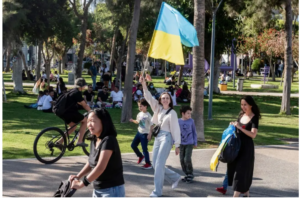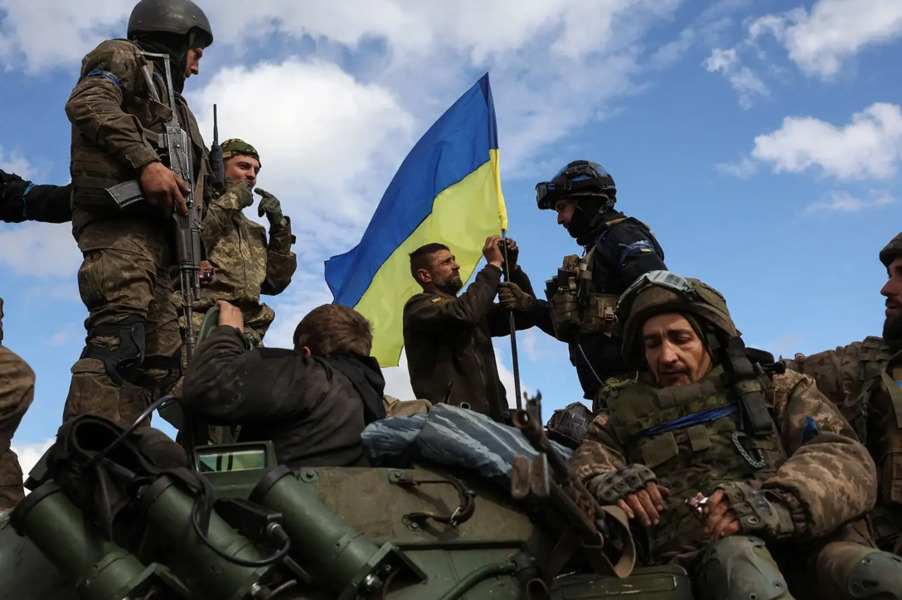The Republic of Cyprus is firmly in Moscow’s orbit. Russian influence has penetrated all levels of Cypriot society. After the collapse of the USSR, Russian officials, near-Kremlin businessmen, and officers of special services moved huge amounts of money from Russia to Cyprus.
Along with the money, the Russians brought corruption and political influence. Many representatives of the Cypriot establishment have connections, including corrupt ones, with Russian structures and often act in Russia’s interests to the detriment of their country and the European Union. Many politicians and other influential Cypriots enrich themselves by serving the interests of powerful Russians and their assets on the island.
This has created a fertile environment for the proliferation of Russian special services and agents of influence into the political, business, religious and public circles of Cyprus.
Cyprus has a large Russian-speaking community. According to some reports, there are more than 100,000 Russian-speaking residents on the island. This is 10 per cent of the country’s population. With the help of not quite legal schemes, many have received Cypriot citizenship – enabling them to vote in Cypriot elections.
Russian propaganda and disinformation spread freely on the island through Russian-controlled media.
In Cyprus, there are many organizations created and financed by Moscow, masquerading as a public service to simulate social, cultural and scientific activity. All these organizations serve as a cover for Russian agents. Some are focused on local society to find new allies in the country, others are aimed at emigrants from the USSR and Russia to reinforce the Kremlin’s control.
These and many other factors have contributed to the unique situation in which most of the political elite and population of Cyprus, a member of the European Union, adhere to pro-Russian views and tend to justify Russian war crimes in Ukraine. Most Cypriot citizens, when asked, blame the US, the EU and NATO for the invasion of Ukraine – copying Russian propaganda narratives.
As a result, the Cypriot government has little interest in searching for and seizing Russian assets. In Cyprus, they do not fight against the laundering of dirty Russian money and allow Russians and their assets to move with near impunity.

Following the invasion, pro-Russian forces and organizations have become noticeably more active in Cyprus. It is shocking that an EU member state has regular pro-Russian demonstrations. The problem takes an even more serious turn when you consider the case of Irina Krivous. A Ukrainian national whose imprisonment demonstrates Russian influence on the Republic of Cyprus and the impact Russia is having on the rule of law within the European Union.
In other EU countries, such actions are prohibited, Russian activists could face criminal charges for their support for the unprovoked invasion of Ukraine. Cypriot authorities do not interfere, instead they show approval every time they issue permission for such events. The police guard processions, motor rallies and rallies of racists. Pro-Russian activists and propagandists feel free and act with impunity.
Formally, Cyprus fulfils the obligations assumed within the EU in relation to Russia. Previous President Anastasiadis and newly elected President Christodoulides condemned the Russian invasion of Ukraine. More than 20,000 Ukrainian refugees have found refuge on the island. Cyprus provides humanitarian assistance to Ukraine. In international forums and international organizations, the representatives of Cyprus say the right words, make the right statements and vote for the right resolutions.
Yet at the same time, the Cypriot authorities, after February 24, 2022, did not show solidarity with other EU member states and have yet to expel a single Russian diplomat.
Cypriot authorities are doing everything possible to facilitate the influx of Russian tourists through third countries, bypassing the existing sanctions. The main route is through increasing the number of flights from Moscow to Larnaca via Yerevan.
Prior to Russia’s full-scale invasion of Ukraine, flights between Cyprus and Armenia were operated twice a week by Wizz Air. After the imposition of a ban on flights of Russian aircraft in EU airspace, Wizz Air has dramatically increased the number of flights from Larnaca to the Armenian capital. Cyprus Airways also began flying there. FlyOne Armenia has also received permission from the Cypriot authorities and will launch direct flights from Yerevan to Larnaca in May.
There are more Russian airlines flying to Yerevan than ever before. Airlines already operating on this route have also massively increased the number of flights to Yerevan. Russian tour operators sell tickets to Larnaca with a connection in Yerevan as a single ticket. Russian propaganda publications in Cyprus openly and enthusiastically announce the «opening of new Moscow-Larnaca routes through Yerevan».
The overwhelming majority of passengers arriving from Yerevan to Larnaca are Russians. This is blatantly happening with the support of the government of the Republic of Cyprus all the while the Kremlin is waging a criminal war in Ukraine.
Cyprus may claim that they do not violate Russian sanctions. But even if the word of the sanctions is not broken, which I doubt, the spirit of the sanctions is being flouted by the Cypriot government. The Cypriot authorities know why Wizz Air, Cyprus Airways, FlyOne fly to Yerevan.
The spirit of the sanctions is being flouted by the Cypriot government.
This is only a small part of the current situation in Cyprus. The recent US and UK sanctions against a number of Cypriot citizens and companies have only touched the tip of the giant iceberg of Russian influence in the Republic of Cyprus. Without substantial EU aid and pressure, Cyprus will not escape Russian influence.
Russian singers and showmen, such as Zemfira and Splin are travelling to Cyprus for concerts organised by agencies, such as MMI Concert Agency and Interfest Cyprus, affiliated with Russian businessmen and politicians that are suspected of money laundering.
Russia has been employing tactics like those used during the Soviet era to recruit individuals as Russian spies, infiltrate other countries or pressure Russian emigres. Following the dissolution of the USSR, Russian expats have been able to found political parties enter politics. Two major examples are Die Einheit in Germany (2013), Ego o Politis in Cyprus (2017).
The EU and the West must act. It’s truly bizarre that such an instance of infilitration and ideology capture within the EU’s membership has not been addressed. This is an EU member clearly being puppeted by a hostile power.
Oleksiy Goncharenko, MP for Odesa, Ukraine and the founder of the Ukrainian network of educational and cultural centres — the Goncharenko Centre.
Source: Comment Central

